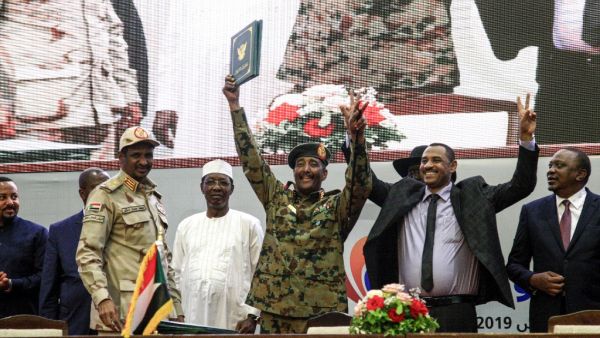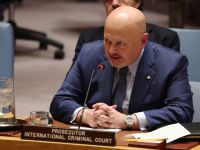A move by Sudan’s army chief to create a new body with broad powers was rejected on Saturday by the country’s Forces of Freedom and Change (FFC) alliance, report.
The FFC – a wide political coalition of civilian and rebel coalitions of Sudanese groups – rejected the powers conferred to the Transition Partners Council (TPC) and urged General Abdel Fattah Al-Burhan to review his decision.
The FFC stated that powers referred to the new body were inconsistent with the Amended Transitional Constitutional Document.
Burhan heads Sudan’s sovereign council, a military-civilian body established in August last year.
From pro-Assad regime groups to a Sudanese warlord and Russian mercenary group Wagner, Libya’s current situation - especially in terms of foreign fighters - has raised concerns at the UN https://t.co/iXxJD9PrE4
— TRT World (@trtworld) December 4, 2020
It is Sudan’s highest executive authority and is overseeing a fragile three-year transition to civilian rule after the April 2019 ouster of veteran strongman Omar Al-Bashir.
However, Burhan told Al-Arabiya TV that the TPC was the initiative if the FFC.
“The Sovereign Council and the Council of Ministers agreed to approve the TPC, and it was formed unanimously in accordance with the constitutional document,” he said.
A recent decree by Burhan has established a “Council of Transition Partners” (CTP) that is “responsible for leading the transition period, resolving differences (between those in power) and having all the necessary prerogatives to exercise its power”, Sudan’s SUNA news agency reported.
The decree was made public earlier this week.
Prime Minister Abdalla Hamdok’s transitional government has rejected the move, saying Burhan has overstepped his prerogatives by conferring excessive powers on the new body.
Government spokesman Faisal Mohammed Saleh said in a statement Friday that Burhan’s decree contradicted the “constitutional declaration” signed in August last year between pro-democracy activists and military generals.
“It is imperative that we declare our disaccord with the creation of the CTP in its current form,” said Saleh, who is also culture and information minister.
The government and the sovereign council have agreed to limit the tasks of the new body to “coordinating and resolving disagreements that might emerge during the transitional period”, he added.
Local media reported that premier Hamdok told the Forces for Freedom and Change umbrella protest group of his disagreement with the powers accorded to the CTP.
Bullshit!!! Post the Darfur, Blue Nile and Nuba mountain people too next time you low life. https://t.co/k151hkYtpF pic.twitter.com/T57lqtxX0J
— Jillock (@Jillock1) December 4, 2020
“Its role must be purely consultative and in no case must it interfere in the activities of the executive and legislative bodies, nor those of the sovereign council,” Hamdok said, according to local media quoting political sources.
The Forces for Freedom and Change was the movement that led mass protests against Bashir and plays a key role in Sudanese politics.
It has also expressed its opposition to Burhan’s decree.
This article has been adapted from its original source.








